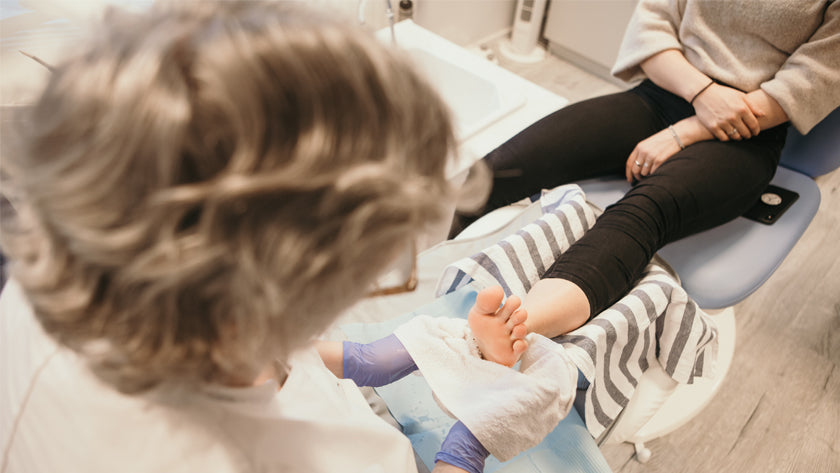
Different types of foot fungus and the best treatment
Foot fungus can appear at any time of the year. Although, sweating, and walking barefoot, make it more frequent to suffer from an infection. In this article, we will talk about foot fungus cases and what treatment helps you to get rid of it.
According to experts, 70% of the population may suffer from foot fungus
Experts estimate that over the course of a lifetime, 70 percent of the population may suffer from foot fungus infection. Some of the most common types are as follows:
Athlete's foot
Among all the types of foot fungus, this is the best known. Fungus usually appears between the toes, but if not properly treated, it can spread to cover the sole or lateral edges of the foot.
Symptoms of foot fungus include redness in the affected areas, itching and stinging, and even blisters.
Athlete's foot occurs in hot and humid conditions, so it usually appears in summer. The risk of fungal infections increases when walking barefoot in swimming pools, showers and grassy areas, and not to mention sweating and wearing non-breathable footwear.
Onychomycosis
This type of foot fungus starts on the skin, but quickly spreads to the nails, which become yellow, brittle and somewhat thicker than usual. The infection is more common in summer when walking barefoot in swimming pools and wet areas, although it can also appear in people who work with water, patients with a weakened immune system or skin problems.
If you notice the nail is turning yellow, lifts or breaks easily, hurts or itches, it is probably Onychomycosis.
Candidiasis foot fungus
Candidiasis is one of the most dangerous fungal infections, making your feet look unattractive and increasing odor. It starts in the nails and turns them a greenish-yellow color, deforms them and causes pain similar to ingrown toenails but much worse.
Fungal infections of this type can occur both in summer and winter because we wear very closed shoes, and even if we do not realize it, our feet sweat and humidity increases. Be careful with boots and heels.
Dermatophytosis or plantar fungi
Unlike the other types of foot fungus, this one spreads through the sole and produces a peeling of the skin that can lead to other problems. It starts as a simple itch, but when the intensity increases, the skin cracks.
It occurs most often in the summer, when foot fungus is spread by contact with a contaminated area, such as a swimming pool floor or a gym shower.
Foot fungus symptoms
Although there are some differences between the foot fungus types, the symptoms are the same for all infections:
* Continuous itching, leading to burning and even swelling in the area.
* Redness of the area where the fungus is.
* Dryness and cracking of the skin and nails, becoming flaky and peeling.
* Blisters under the skin, especially in severe cases.
* Nail changes. The color becomes yellow with various shades, the nail thickens and weakens to the point of falling off.
* Bad odor without knowing what may be the cause.
Foot fungus is a health problem that you cannot take lightly. As soon as you notice any symptoms, react quickly to eliminate the cause and recover your healthy foot condition.
Imperial Feet has a wide variety of products dedicated to foot care, and antifungals are our specialty. The best treatments to get rid of foot fungus are the Nail Mycosis Solution and Athlete's Foot Solution. Through this link you can find more information: Imperial Feet products.










